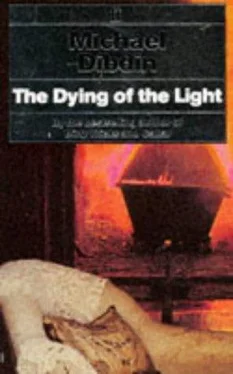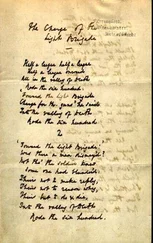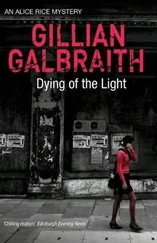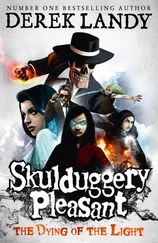Michael Dibdin - The Dying of the Light
Здесь есть возможность читать онлайн «Michael Dibdin - The Dying of the Light» весь текст электронной книги совершенно бесплатно (целиком полную версию без сокращений). В некоторых случаях можно слушать аудио, скачать через торрент в формате fb2 и присутствует краткое содержание. Жанр: Классический детектив, на английском языке. Описание произведения, (предисловие) а так же отзывы посетителей доступны на портале библиотеки ЛибКат.
- Название:The Dying of the Light
- Автор:
- Жанр:
- Год:неизвестен
- ISBN:нет данных
- Рейтинг книги:5 / 5. Голосов: 1
-
Избранное:Добавить в избранное
- Отзывы:
-
Ваша оценка:
- 100
- 1
- 2
- 3
- 4
- 5
The Dying of the Light: краткое содержание, описание и аннотация
Предлагаем к чтению аннотацию, описание, краткое содержание или предисловие (зависит от того, что написал сам автор книги «The Dying of the Light»). Если вы не нашли необходимую информацию о книге — напишите в комментариях, мы постараемся отыскать её.
The Dying of the Light — читать онлайн бесплатно полную книгу (весь текст) целиком
Ниже представлен текст книги, разбитый по страницам. Система сохранения места последней прочитанной страницы, позволяет с удобством читать онлайн бесплатно книгу «The Dying of the Light», без необходимости каждый раз заново искать на чём Вы остановились. Поставьте закладку, и сможете в любой момент перейти на страницу, на которой закончили чтение.
Интервал:
Закладка:
She sat there in silence, despising herself for her selfish weakness in breaking down at the very moment when her friend was more than ever in need of her strength and support.
‘I don’t know what to say, Dot,’ she added lamely, when she could trust herself to speak.
‘I know,’ Dorothy murmured. ‘It’s like a miracle.’
As a child, Rosemary had an uncle whom her mother pronounced ‘common’, just about the worst failing in her book. Murdering someone didn’t necessarily lower you socially, but the said uncle’s tendency to bark ‘Eh?’ when he failed to hear, understand or approve of a statement made to him she regarded as an unforgivable lapse of taste. The young Rosemary’s attempts to imitate this shameful trait had been ruthlessly repressed, but she could not now prevent herself emitting the vulgar vowel, such was her astonishment.
‘Just think!’ Dorothy went on. “There you were telling me how vital it was for me to get away from here before I became the next victim. And now, as if by magic, that’s what’s going to happen! Miss Davis took me to Mr Anderson’s office. Dr Morel was there. He told me that the tests I had showed that I needed to go into hospital straight away…’
She broke off. Rosemary squeezed her hand. Dorothy gave a little laugh.
‘So there we are! Isn’t it wonderful?’
Rosemary finally understood, among many other mysteries, why Dorothy had pretended to be unable to locate the light switch. She too was grateful for the darkness, which reduced all the intolerable complexities of what they were suffering to a mere exchange of dialogue characteristic of the parts which they had elected to play. She had created these parts herself in an attempt to make a fictional virtue of the factual necessity for Dorothy to return to hospital. The idea of the alphabet murderer had been a feeble contrivance, stolen – as Dorothy had not scrupled to point out-from a half-remembered whodunnit, but it was the best she had been able to do in the time at her disposal, still numb with the shock of what she had overheard Morel and Anderson saying.
Dorothy, for her part, had evidently decided to accept it in the spirit in which it had been offered. She did not really believe that her life was in imminent danger, of course, but was pretending to do so in order to spare both of them the pain and confusion that would otherwise be unleashed. It was a supremely civilised piece of behaviour. Neither was taken in by the other’s act, but each would play her role to the end.
‘Wonderful,’ echoed Rosemary.
But Dorothy had not exhausted her capacity to surprise.
For me, yes. But what about you. Rose?’
‘What about me?’
Dorothy withdrew her hand.
‘Oh, I know what you must be thinking!’ she exclaimed. ‘”It’s all very well for Dot, but what about the rest of us?” And it’s true, Rose. I’ll be safe enough, but you will still be here, in his…’
She laughed.
‘…or her power.’
The breeziness of her tone quite disconcerted Rosemary. For a moment she felt a shiver of apprehension, as though something uncanny was afoot, something she had not planned and did not understand. It was quite in order that Dorothy should wish to appear calm and collected. What was disturbing was that at moments Rosemary had a distinct sense that she really was. Ever since learning that she might have to go to hospital, Dorothy had been on the verge of a tearful collapse at the mere idea, yet now the worst had occurred she seemed immune, floating above it all, as though it were a matter of no personal concern to her at all.
‘His or whose power?’ she murmured vaguely.
Dorothy gave a snort of impatience.
‘The murderer’s, of course!’
The door swung open and all the lights came on.
‘Murderer?’ cried Mr Anderson. ‘What murderer?’
He stood over the two women, nosing his tumbler of whisky. As Rosemary’s eyes adjusted to the glare, she made out Miss Davis circling round from the other side. She was holding a tall stemmed glass filled with layers of different-coloured liquids – tawny, green, red, blue and yellow-topped by a miniature umbrella.
‘You’ll get fucking murdered, if you don’t watch out,’ she said.
Ignoring her, Rosemary looked at Anderson.
‘We were discussing a book.’
‘A book?’ Anderson replied.
He raised his eyebrows and then frowned, sipping his drink.
‘I dimly recall that among the amenities available to residents under the former regime was a selection of trashy whodunnits and mawkish romances such as might be expected to appeal to persons of low taste and declining faculties, but they’ve long since gone the way of everything else round here that isn’t nailed down. Might I therefore ask to which book you allude, Miss Travis?’
Rosemary waved airily.
‘Oh, one Dorothy read years ago, during a wet weekend in Wales. She was just describing the plot to me.’
Miss Davis lifted the paper umbrella from her drink.
Her lips englobed the maraschino cherry impaled on the stick below.
‘Liar,’ she said.
‘Now, now,’ murmured Anderson. ‘Don’t let’s spoil the party.’
He took a gulp of whisky.
‘Nevertheless,’ he continued, ‘given that Mrs Davenport cannot always be relied upon to recall with any accuracy what she had for breakfast, it does at first sight seem hard to believe that she should be waxing lyrical, still less logical, about some shilling shocker she once read in Rhyl.’
‘Pwllheli,’ Dorothy put in.
‘Bless you, dear!’ murmured Rosemary.
Miss Davis sucked at the upper layer of her cocktail.
‘Lying bitch,’ she said.
Anderson fixed Rosemary and Dorothy with a penetrating stare.
‘I put it to you, ladies, that so far from discussing a whodunnit, you were in fact concocting one.’
‘Well?’ said Rosemary. ‘And what of it?’
Anderson glanced at Miss Davis.
‘Did you hear that, Letty?’
‘I did, William. I did indeed.’
‘Miss Travis wishes to know what of it.’
‘Impertinent cunt. Do you want me to take steps?’
‘Not at present, I think. After all, we must make due allowance for the situation in which the two ladies find themselves. Parting is such sweet sorrow, and so on. Partir, c’est mourir un peu-or, in Mrs Davenport’s case, a lot. Let us therefore endeavour to rise above petty considerations and address her question.’
He turned back to Rosemary and Dorothy.
‘I realise that time can hang pretty heavy round here, especially so, paradoxically enough, for those with very little left. Nor has it escaped my attention that your favourite way of passing it has been to work up elaborate scenarios of imaginary mayhem featuring those who have left us feet first as the victims, the dwindling band of survivors as the suspects, and your good selves as the intrepid sleuths. Hitherto I have had no particular reason to take exception to this, but the case is now altered. If an outsider were to witness an exchange such as the one which Letty and I just overheard, the resulting disruption to the life of our little community would be quite intolerable. I must therefore ask you, Mrs Davenport, to put these tall tales of dark deeds at Eventide Lodge very firmly out of your mind.’
He turned to the other residents.
‘I should explain that from tomorrow dear Dorothy will be with us no more. Despite my objections, to say nothing of her own stated preferences, the powers that be have decreed that she is to be transferred to hospital, there to undergo a course of treatment which according to Dr Morel is not only hideously painful and degrading but completely pointless when the carcinomata are, in his memorable phrase, “sprouting like fungi on a dead tree”.’
Читать дальшеИнтервал:
Закладка:
Похожие книги на «The Dying of the Light»
Представляем Вашему вниманию похожие книги на «The Dying of the Light» списком для выбора. Мы отобрали схожую по названию и смыслу литературу в надежде предоставить читателям больше вариантов отыскать новые, интересные, ещё непрочитанные произведения.
Обсуждение, отзывы о книге «The Dying of the Light» и просто собственные мнения читателей. Оставьте ваши комментарии, напишите, что Вы думаете о произведении, его смысле или главных героях. Укажите что конкретно понравилось, а что нет, и почему Вы так считаете.












